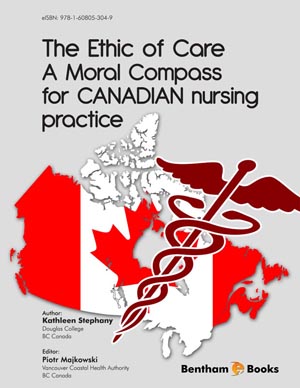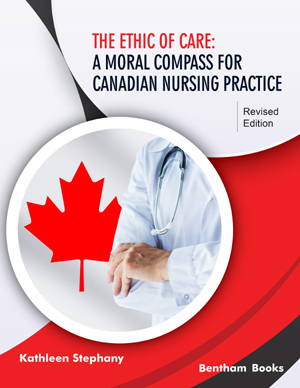Abstract
Professional behaviours and values that are associated with ethical nursing practice are carefully articulated in this chapter. Society grants a profession a monopoly over their area of expertise because the implicit assumption is that these people can meet the needs of the public better than any other group. In order for any set of individuals to refer to themselves as a profession four standards must be present: they must possess a specialized body of knowledge; they have to be accountable; they are required to be selfgoverning; and they are obligated to abide by a code of ethics. Because the profession of nursing requires more of their members than just the basic criteria, specific responsibilities are clearly presented. Crucial components of the profession of nursing include, but are not limited to: accountability; competent applicant of knowledge; provision of services; setting professional boundaries; and the role of nursing leadership. Nurses are encouraged to look for creative ways to impart their knowledge to others in the form of: attending conferences and educational forums; being published in nursing journals; as well as becoming involved in research clubs and communities of practice. Although skills, knowledge and accountability are important aspects of the profession of nursing, other components are equally as valid. The discussion, therefore, concludes with specific suggestions for how a nursing career can be lived as a call to care. The case study that is presented at the closing of the chapter is derived from an actual Coroner’s case and reveals how the intention to cover-up a mistake is discovered.
Keywords: Professional, Responsibility, Specialized body of knowledge, Charting, Provision of services in the public interest, Self-regulation, Union, Boundary violations, Fiduciary relationship, Leadership, Professional boundary







